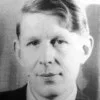Quotations about:
bereavement
Note not all quotations have been tagged, so Search may find additional quotes on this topic.
There’s not a joy the world can give like that it takes away.
George Gordon, Lord Byron (1788-1824) English poet
“Stanzas for Music,” st. 1 (1815-03)
(
Source)
Added on 30-Mar-23 | Last updated 30-Mar-23
Link to this post
Topics: bereavement, grief, happiness, joy, loss, sorrow
More quotes by Byron, George Gordon, Lord You are neither the first nor the last of mortals
to lose a good wife. You have to learn
that death is a debt we all must pay.
[οὐ γάρ τι πρῶτος οὐδὲ λοίσθιος βροτῶν
γυναικὸς ἐσθλῆς ἤμπλακες· γίγνωσκε δὲ
ὡς πᾶσιν ἡμῖν κατθανεῖν ὀφείλεται.]
Euripides (485?-406? BC) Greek tragic dramatist
Alcestis [Ἄλκηστις], c. l. 415 [Chorus] (438 BC) [tr. Leuschnig]
(
Source)
Alt. trans.:
Thou art by no means the first nor yet shalt be the last of men to lose a wife of worth; know this, we all of us are debtors unto death.
[tr. Coleridge (1910)]
Thou shalt not be the last, nor yet the first,
To lose a noble wife. Be brave, and know
To die is but a debt that all men owe.
[tr. Murray (1915)]
Not first of mortals thou, nor shalt be last
To lose a noble wife; and, be thou sure,
From us, from all, this debt is due -- to die.
[tr. Way (1984)]
You are neither the first nor the last mortal
Who has lost a good wife. Understand this:
Dying is a debt we all have to pay.
[tr. @sentantiq (2020)]
Added on 20-Nov-20 | Last updated 20-Nov-20
Link to this post
Topics: bereavement, death, grief, mortality, spouse, widow, widower
More quotes by Euripides My son, a perfect little boy of five years and three months, had ended his earthly life. You can never sympathize with me; you can never know how much of me such a young child can take away. A few weeks ago I accounted myself a very rich man, and now the poorest of all.
Ralph Waldo Emerson (1803-1882) American essayist, lecturer, poet
Letter to Thomas Carlyle (1842-02-28)
(
Source)
Added on 20-Mar-18 | Last updated 27-Mar-23
Link to this post
Topics: bereavement, child, death, grief, parent, perspective
More quotes by Emerson, Ralph Waldo For as much as I hate the cemetery, I’ve been grateful it’s here, too. I miss my wife. It’s easier to miss her at a cemetery, where she’s never been anything but dead, than to miss her in all the places where she was alive.
John Scalzi (b. 1969) American writer
Old Man’s War (2005)
Added on 23-Aug-16 | Last updated 23-Aug-16
Link to this post
Topics: absence, bereavement, cemetery, family, grave, graveyard, memory, mourn
More quotes by Scalzi, John Bereavement is a universal and integral part of our experience of love. It follows marriage as normally as marriage follows courtship or as autumn follows summer.
C. S. Lewis (1898-1963) English writer, literary scholar, lay theologian [Clive Staples Lewis]
A Grief Observed (1961)
Added on 26-Aug-15 | Last updated 26-Aug-15
Link to this post
Topics: bereavement, death, grief, marriage, widow, widower
More quotes by Lewis, C.S. Excess of grief for the deceased is madness; for it is an injury to the living, and the dead know it not.
Xenophon (c. 431-355 BC) Greek historian and essayist
(Attributed)
(
Source)
In Anon. Mental Recreation Or, Select Maxims, Sayings And Observations Of Philosophers (1831).
Added on 19-Mar-15 | Last updated 19-Mar-15
Link to this post
Topics: bereavement, grief, hysteria, mourning
More quotes by Xenophon He first deceased; she for a little tried
To live without him: liked it not, and died.
Henry Wotton (1568-1639) English author, diplomat, politician
“Upon the Death of Sir Albertus Moreton’s Wife” (1651)
Added on 12-Mar-15 | Last updated 12-Mar-15
Link to this post
Topics: bereavement, death, grief, solitude, widow
More quotes by Wotton, Henry I can’t think of a more wonderful thanksgiving for the life I have had than that everyone should be jolly at my funeral.
Lord Mountbatten (1900-1979) British statesman and naval officer (Louis Francis Albert Victor Nicholas Mountbatten, 1st Earl Mountbatten of Burma, b. Prince Louis of Battenberg)
(Attributed)
(
Source)
Quoted in Richard Hough, Mountbatten (1980).
Added on 5-Mar-15 | Last updated 5-Mar-15
Link to this post
Topics: bereavement, death, funeral, good time, grief, jollity, jolly, party, thanksgiving, wake
More quotes by Mountbatten (Lord) Time does not bring relief; you all have lied
Who told me time would ease me of my pain!
I miss him in the weeping of the rain;
I want him at the shrinking of the tide;
The old snows melt from every mountain-side,
And last year’s leaves are smoke in every lane;
But last year’s bitter loving must remain
Heaped on my heart, and my old thoughts abide!
There are a hundred places where I fear
To go, — so with his memory they brim!
And entering with relief some quiet place
Where never fell his foot or shone his face
I say, “There is no memory of him here!”
And so stand stricken, so remembering him!
Edna St. Vincent Millay (1892-1950) American poet
Sonnet 2: “Time does not bring relief,”
Renascence: and Other Poems (1917)
(
Source)
The sonnets were not originally numbered, nor did they include titles. Later collections with this poem reduced the number of exclamation points (
e.g.).
Added on 26-Feb-15 | Last updated 1-Feb-24
Link to this post
Topics: bereavement, death, ghost, grief, loss, love, memory, remembrance, survivor
More quotes by Millay, Edna St. Vincent A man’s dying is more the survivors’ affair than his own.
Thomas Mann (1875-1955) German writer, critic, philanthropist, Nobel laureate [Paul Thomas Mann]
The Magic Mountain (1924)
Added on 19-Feb-15 | Last updated 19-Feb-15
Link to this post
Topics: bereavement, death, grief, survivor
More quotes by Mann, Thomas The Bustle in a House
The Morning after Death
Is solemnest of industries
Enacted upon Earth —
The Sweeping up the Heart
And putting Love away
We shall not want to use again
Until Eternity.
Emily Dickinson (1830-1886) American poet
“The Bustle in a House” (c. 1866)
Added on 5-Feb-15 | Last updated 5-Feb-15
Link to this post
Topics: bereavement, death, love, mourning
More quotes by Dickinson, Emily Never does one feel oneself so utterly helpless as in trying to speak comfort for great bereavement. I will not try it. Time is the only comforter for the loss of a mother.
Jane Welsh Carlyle (1801-1866) Scottish letter-writer, wife of Thomas Carlyle [née Jane Baillie Welsh]
Letter to Thomas Carlyle (27 Dec 1853)
Added on 29-Jan-15 | Last updated 29-Jan-15
Link to this post
Topics: bereavement, death, grief, mother, son
More quotes by Carlyle, Jane He was my North, my South, my East and West,
My working week and my Sunday rest,
My noon, my midnight, my talk, my song;
I thought that love would last forever: I was wrong.
W. H. Auden (1907-1973) Anglo-American poet [Wystan Hugh Auden]
“Stop All the Clocks [Funeral Blues],” st. 3 (1936)
(
Source)
This stanza is not in the
original version of the poem, for the verse play
The Ascent of F6 (1936) (with Christopher Isherwood).
Instead, it appears in the revised cabaret song that Auden wrote in 1937-1938. It is this latter version, less tied to the play, that is commonly collected, and that gained popularity when recited in the film
Four Weddings and a Funeral (1994).
Added on 20-Jan-10 | Last updated 29-Jul-24
Link to this post
Topics: bereavement, elegy, funeral, grief, loss, love, requiem, separation
More quotes by Auden, W. H. I cannot forgive my friends for dying; I do not find these vanishing acts of theirs at all amusing.
Logan Pearsall Smith (1865-1946) American-English essayist, editor, anthologist
Afterthoughts, ch. 2 “Age and Death” (1931)
(
Source)
Added on 11-Feb-09 | Last updated 10-Oct-22
Link to this post
Topics: bereavement, desertion, dying, friend, grief, loneliness, mortality, offense
More quotes by Smith, Logan Pearsall 













